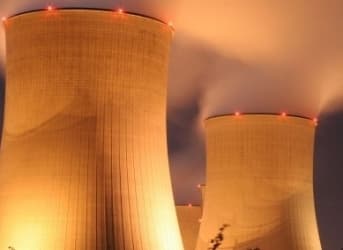
On Friday August 5, India and Australia concluded an important energy deal that will seek to address looming issues facing both countries. The formalization of the agreement marks the conclusion of bilateral talks dating back two years and will offer enormous benefits to both India and Australia.
1. India is actively seeking to address energy shortfalls
India has a stated goal of raising its nuclear energy capacity to 63,000 MW by 2032 by adding $85 billion worth of reactors. Nuclear power, while controversial in some areas, is critical to India’s economic growth plan as it works to reduce paralyzing power shortages hindering growth, foreign investment and productivity.
While the recent election of Narendra Modi provoked concerns about the new BJP governments’ nuclear policies, this agreement dates back two years under former Prime Minister Manmohan Singh’s United Progressive Alliance government. It is largely a reflection of India’s tremendous energy shortfalls and the necessity to address them. Coming on the heels of other agreements with France and Russia, this deal illustrates that India is doing just that.
Related: Supreme Court Ruling Deals Blow To Indian Coal Sector
In addition to increasing uranium to India, the agreement will also increase sales of coal and natural gas to the South Asian nation. This follows a recent decision by the Australian government to develop a coal and rail project in Queensland.
With some Indian power stations down to only a week’s worth supply of coal, increased sales from Australia are a necessity for a country that remains famously coal reliant. But with plans to address the endemic energy poverty in the country hinging largely on nuclear power, the uranium is the most important aspect of the deal and one which illustrates that Modi is actively seeking to address India’s manifold energy problems. Whether this will successfully translate into implementation and be followed with the necessary and properly allocated investments to modernize the energy sector remains to be seen.
2. Further legitimization of India’s status as a nuclear power
India is the first country to buy Australian uranium that was not a signatory to the Nuclear Nonproliferation Treaty. The country shocked many experts when after two decades of attempts; it successfully tested a nuclear bomb in 1998, heightening regional tensions and global fears over war with neighboring nuclear power Pakistan. The event caused strains with a Clinton administration attempting to work on nonproliferation and avoiding war on the subcontinent (which did in fact erupt less than a year later with the Kargil conflict).
Relations between the U.S. and India did receive a significant boost as the Bush Administration worked fervently to engage the country culminating in the 2008 Civil Nuclear Agreement, which accepted the reality of the country’s nuclear power status while providing important safeguards, proving a high water mark for relations between the two nations.
While the country has received uranium from 11 other countries including Russia, France, and Kazakhstan, a long-term deal with a country from the established western liberal order will further work to confer legitimacy as the world continues to adjust to a nuclear India.
3. Australia benefits from diversified trade patterns
Australia has the world’s third largest uranium reserves and thus has plenty of it to part with. The country can quite easily afford to become the long-term supplier of uranium that India will need to meet its ever-growing energy needs. What Australia doesn’t have much of is trade with India.
Related: Here's A New Update in India's Gold Saga
While working to help further develop the uranium mining industry in western Australia, this agreement will benefit relations between the two nations and to diversify Australia’s trade. At present, Australia has only $15 billion in annual trade with India. This amount looks particularly paltry when compared to the $150 billion in annual trade that the land down under has with China. With a growing population of middle class consumers, trade with India can be increasingly important to Australia’s economy in the future.
As questions mount regarding Sino-Australian relations in the future, the opportunity to have a stable democracy (and in particular a country that doesn’t punish its enemies with unofficial trade sanctions) as a growing trade partner looks increasingly attractive to the government of Tony Abbott. This deal may serve to open the lucrative markets of trade with India while providing both a better relationship and greater trade security for Australia.
The agreement reached between India and Australia will have important benefits to both nations. If successfully implemented, it may help India tremendously in addressing critical energy issues over the long-term while enhancing its growing legitimacy as a nuclear power and shoring up Australia’s economic security. From a geopolitical perspective, it could significantly advance bilateral relations between two nations of increasing import to the global order.
By Sean Durns
(Source: www.globalriskinsights.com)
More Top Reads From Oilprice.com:
- This Major Uranium Event Is Finished Already
- As Radioactive Water Accumulates, TEPCO Eyes Pacific Ocean As Dumping Ground
- Nuclear Waste Not Want Not



















Misleading! India tested an atomic device in the 1970s (I believe it was 1972). To state that India tested it in 1998, after "two decades of _ATTEMPTS_", is misleading.
The author is over-analyzing the situation. Australia exports commodities. China is the main buyer. China is cooling. So, Australia needs another big buyer of commodities. NPT (or, whatever) be damned!